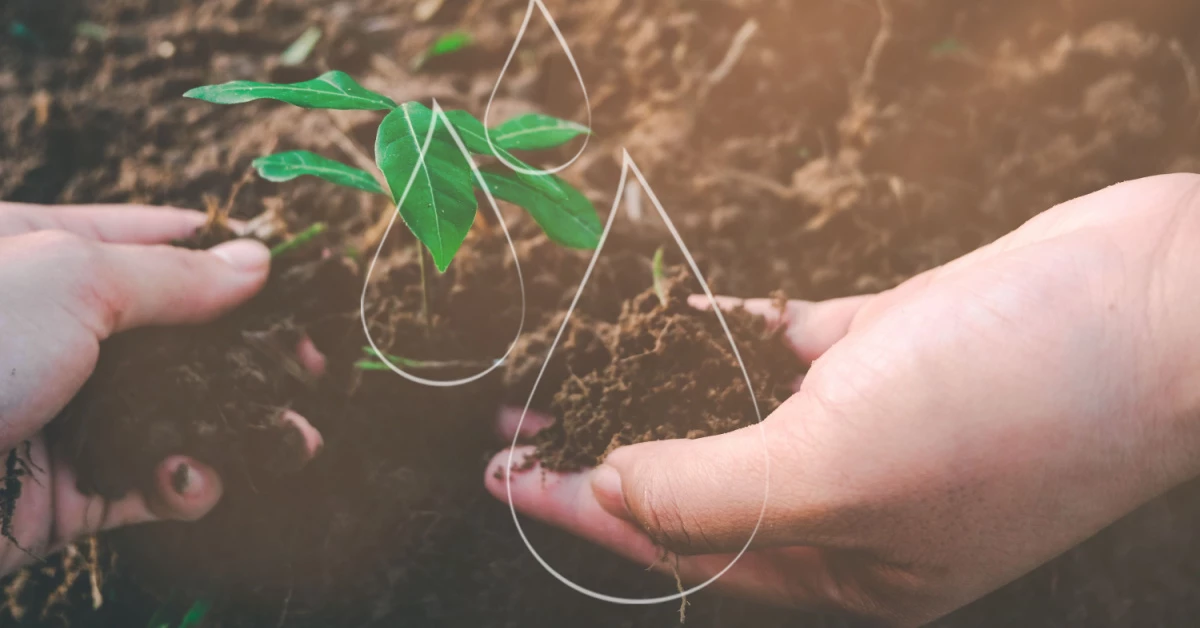Traditional agriculture practices strain natural resources. Here is how improving sustainability in agriculture can mitigate the damage.
In 2015, UN member countries ratified sustainability agriculture as one of the 2030 Sustainable Development Goals (SDG). Specifically, SDG 2 is to “end hunger, achieve food security and improved nutrition and promote sustainable agriculture.” This is important because of the world population is growing, recently surpassing 8 billion. At the same time, natural resources are rapidly depleting, a situation made worse by factors like climate change.
Agriculture is a major contributor towards deforestation and biodiversity loss. It accounts for 90% of reactive nitrogen and phosphorus inputs, pesticide chemicals, 25-37% of anthropogenic greenhouse gas emissions and 90% of the global water consumption. Also, poor land management led to about 30% of all global land being degraded and losing its ability to produce sufficient yields.
Sustainability in agriculture improves the efficiency of inputs used to produce agricultural output. At the same time protecting the earth's natural resources by improving/maintaining soil quality, reducing erosion and preventing water pollution. If used correctly, sustainable agriculture can mitigate the harm caused by traditional agricultural activities.
Since 2015, South Korea, Germany, Australia, Japan and Canada have emerged as sustainable agriculture leaders with the first 4 countries implementing policies encouraging sustainable water management, laws protecting smallholder farmers, and access to agri-financing. Also, Canada has taken outstanding measures to reduce its emissions.
Seed Control & Optimization of Resources and Production at Farming
To improve agricultural practices, farmers must not only aim to have good yields at minimum costs but consider their social responsibility and the impact of their production on the environment. It goes without saying that the input of seeds, pesticide, fertilizer, water and diesel have to be optimized to achieve this, taking into account the quality of the soil and the prevailing weather conditions.
For the production, the right type of seeds (being conventional, genetical modified, treated/coated) is dependent on the soil and climate condition. Certainly, the production process and the development of the plant needs to be followed and monitored for the right application of irrigation, pesticides and fertilizer. The optimized input of these factors guarantees efficiency, reduces the impact on the environment and the cost incurred by the farmer.
To support this, Cotecna can leverage its network of laboratories across the world to support clients to detect contaminations, either to cope with regulatory requirements or go beyond and identify traces at low levels of detection. Some of our Plant Health laboratories - for example in Brazil (Agronomica) or in Spain (Fitosoil) - are offering end-to-end services from phytopathology, soil/water analysis, or contaminant, fertilizer and biostimulant expertise in order to monitor the development of the plant to promote resourceful and optimized production.
Monitoring of Plant Development
Plant growth can be monitored and measured to help increase yields while decreasing the environmental impact of farming. The monitoring is performed by visual assessment of the plant, sampling parts of the plant and through analysis. The result of the analysis indicates what a plant is precisely missing. Thus, resources are not wasted, and any environmental impact is reduced. To facilitate the monitoring of plant development, Cotecna offers sampling and testing of soil, water, leaves and fruits, providing recommendation for corrective action if required.
Groundwater Risk and Water Analysis
Water is an essential agricultural element. One of the concerns sustainable agriculture addresses is the efficient use of water to produce higher yields. Climate change has affected the availability of water from precipitation. Where precipitation is unavailable, farmers depend on groundwater. Unfortunately, a growing proportion of the available groundwater is at risk of contamination. The quality of water is important but in case of any shortcomings it cannot be practically replaced. Finding alternative water sources, therefore, becomes costly. The optimized consumption of water is paramount for its use sustainability. To manage and prevent exposure to contaminated water, Cotecna can collect samples and test the quality of water to determine usability.
About 10% of the world population is currently food insecure due to climate change, conflict and the COVID-19 pandemic. As such, improving sustainability in agriculture is essential if we are to meet SDG 2.
To learn more about how to improve sustainability in agriculture or how Cotecna can assist you to reach your sustainability goals, please contact us.


